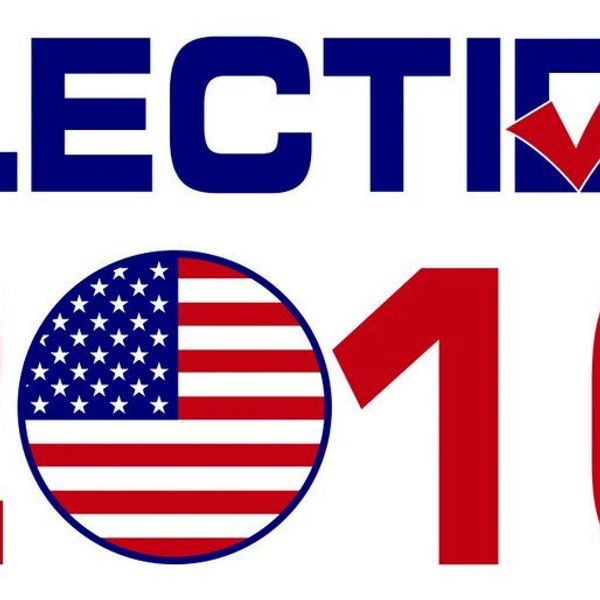This week in American politics, the topics de jour have been unity and division. Both major political parties have been wracked by crises concerning their ability to consolidate themselves leading up to the general election for president in November. Both parties have managed to select a single candidate to represent them in the upcoming contest, but not without snags. At the Republican convention, the Never Trump crew tried to throw a putsch and prevent Donald Trump from receiving the nomination, and Ted Cruz, Trump’s last standing rival on the road to the throne, refused to fall in line and endorse him. As for the Democrats, the "Bernie or Bust" group has been protesting Hillary Clinton’s nomination as the party’s candidate for POTUS. They’ve been doing this for many reasons; because they view Hillary as a member of a corrupt establishment, as part of an oligarchy where money controls politics, and/or they’re angry that the Democratic National Committee appears to have been partial towards Clinton during the primaries when they were meant to be neutral. The Bernie or Bust movement (if one can call it a movement) has gotten a lot of flack from other progressives for failing to back Clinton and oppose Trump. They’re being viewed as whiners, complainers, sore losers, and a danger to our country, because their refusal to support the Democratic nominee means that the likelihood of four years of a glittering Trump sign being on display at 1600 Pennsylvania Avenue is much greater.
This is not a crazy view to take. Either Hillary Clinton or Donald Trump are going to be our next president, so if you cast your vote for neither, you’re essentially supporting whoever wins. Bernie Sanders has no chance at being president. Neither does Gary Johnson or Dr. Jill Stein, the Libertarian and Green Party candidates, respectively. As someone who adamantly disagrees with Donald Trump’s policy initiatives and worldview, I am not inclined to support Bernie or Bust-ers. But I get them, I do. Our electoral system is quite frankly, pretty awful. This has become apparent, as the two candidates in this election are the least liked in decades. However, for many complex reasons that I won’t get into here, the majoritarian a.k.a first-past-the-post electoral system in the United States leads to a two-party dominated system. Bernie Sanders is not a Democrat, but he ran as one because he knew it was the only way for him to make his presidential run matter. He wanted to enact change from within the belly of the beast, but was brought down in a potentially shady manner. Now, to keep Trump from getting his paws on nuclear codes, he’s been forced to abandon his call for change and endorse Hillary Clinton. "Bernie or Bust" individuals feel cheated. They are tired of a political system that crushes third party and outsider voices, and they want their revolution. Donald Trump may win if they carry on with their crusade, but they won’t sacrifice their values. And while I disagree with their strategy in this election because I think a Donald Trump presidency would be a disaster for my country, I agree with their principle.
In the "Federalist Papers," James Madison wrote about the dangers of factions, but ultimately concluded that they were an inevitable result of a freedom. Removing liberty to avoid the possibility of factions was akin to getting rid of oxygen because it fuels fires. Yet, Madison still disapproved of the tyranny of the majority, and believed the Constitution he helped write would avert this problem. However, the electoral system of the United States has essentially silenced anyone who does not fall in line with the two major parties. And these two major parties themselves have struggled to embrace entire sides of the political spectrum and hold contradictory, non-cohesive views. An analysis of Donald Trump’s policy initiatives and Mike Pence’s previous voting record will show just how much views can differ among members of the same political party in the United States. Our electoral system has produced two political machines that don’t work very well and limit the ability of minority opinions to be voiced. The dangers of factionalism have been realized, and many Americans want change. So while the Bernie or Bust gang is essentially buttressing the efforts of Donald J. Trump, they are standing for important change in this country. According to the most recent Gallup poll of American’s party affiliation, 42 percent of Americans consider themselves as independents. The Bernie or Bust-ites aren’t just standing with Sanders; they’re standing for the 42 percent of Americans who are disenchanted with the two behemoths that dominate our country’s political discourse. The gauntlet has been thrown, and it will take effort that extends past this November to change the American system in ways that shake up the two-party system. It’s high time to make America’s electoral system more inclusive and open. But it’s important to deal with immediate threats prior to tackling more major problems, and Trump poses such a threat. Americans who oppose his views should work on making sure he doesn’t win the presidency, and then work to end the factionalism the founders of this country so despised.





















